Handling Your Event Staff: Event Planning Tips and Tricks (Popups, Meetings, Events, Production)
Don’t have time to read the whole guide right now?
No worries. Let me send you a copy so you can read it when it’s convenient for you. Just let me know where to send it (takes 5 seconds)
Let’s face it: planning events is hard.
They require a lot of time, dealing with event staff, energy, and patience whether you are a professional planner or not.
So we rounded up some tips for the different types of things you might be planning and how to handle your event staff.
Popups
Popups are the new rage in retail. Essentially, they are shops that are “here today, gone tomorrow.”
So what does that mean?
They are temporary stores that open and close within a matter of hours.
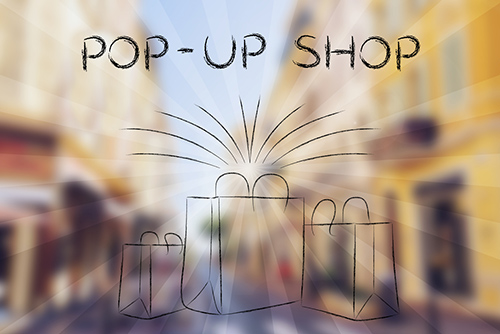
If you are in the retail business, there are plenty of reasons to think about having one:
- Launch a product;
- Engage customers;
- Create a sense of urgency; and
- Create brand awareness
Those are only some of the reasons to launch a popup and they are becoming more and more popular.
So what are some tips to setting up a popup?
1. Putting on a popup for the first time: what’s your purpose?
As I just alluded, it’s not a good idea to throw a popup for the sake of throwing a popup. You want to pick a good reason to throw one.
Are you launching a new product? Do you want to meet your customers offline?
These are some good reasons to think about throwing one. And make sure whatever the reason is becomes the theme of the popup.
For example, if you are launching a new product, make the popup all about that new product.
2. Pick an objective: go big or go home
Now that you know what your popup is going to be about, think about what your objectives are?
Do you need to make a certain amount in gross sales at the popup for it to be worth it?

Or is the goal a little more intangible, just creating more awareness.
Whatever your main goal is, try to make it measurable so you can see if it was a success.
For instance, maybe you just want to create hype for your company. Ok great!
So perhaps measure how well you did by seeing how many bodies you can get in the door. There’s your objective!
3. Popup time: How long you can do it
One study showed that brands will make an average of 5.6 times more in sales per square foot in a popup rather than a generic retail store.
This can happen because of the “get it before it’s gone” mentality which may make you want to have a popup for only a few hours.
But you won’t want to take this approach if your goal is to test the market.
So think of it this way:
If the goal is just pure sales, go with the “get it before it’s gone” method. If you have other goals, you will want to test out the market more fully and stay open longer.
4. Book the right space: there are probably plenty of venues for rent near you
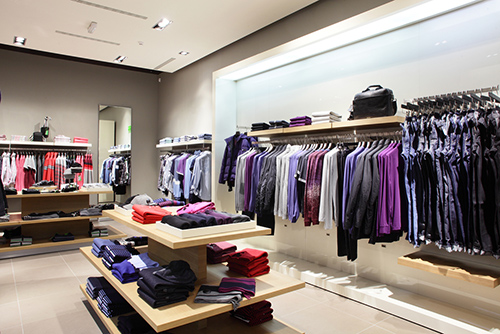
5. Look into the legal stuff: if you can dream you can do it… with a permit
When booking your space, make sure that you have the right permits and insurance for the popup. This is not just up to the space where you book but also jurisdictional requirements like city and state.
What’s the bottom line?
Check with a lawyer if you need to!
6. Check the rental agreement: how to clear your mind of your legal worries
Read whatever contract you have to sign carefully!
This is not about you and the city anymore. This is between you and the landlord. Make sure your repair obligations don’t amount to paying for cleaning fees for instance!
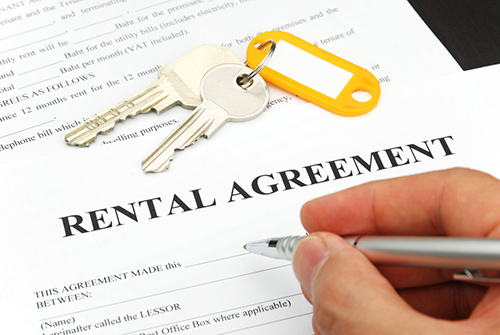
And once again, what’s the bottom line?
Check with a lawyer if you need to!
7. Get an event staff to help out: trick them into thinking these are team building games
Have you ever tried to plan something like this all by yourself?
It’s a lot of work!
If you are a one person shop, consider getting some friends, and creating an event staff, to help you out. Or pay people just for the duration of planning and the day of.
You’ll be glad in the end.
8. How to get sponsorship for an event at your popup
Think of sponsors like partners. In-kind sponsors will give you goods and services in exchange for promotion.
Cash sponsorships will be harder to get unless you have a proven track record.
Either way, this can help you with promoting your popup and may garner some press.
9. Think of this when putting together your fundraising event planning checklist for your popup: use a platform like Kickstarter.
If you have a lot of customers who love you, they may be okay with giving you money to put on the popup.
Check out this example:
“Here Now, a group exhibition and shop created by four Oregon-based artists, used Kickstarter to fund a month-long pop-up with a calendar full of events, each designed to attract a unique audience: fashion showcases, workshops, live music, a film screening, and more.”
So what does this mean?
Fundraising for a popup has been done before and you can do it too!
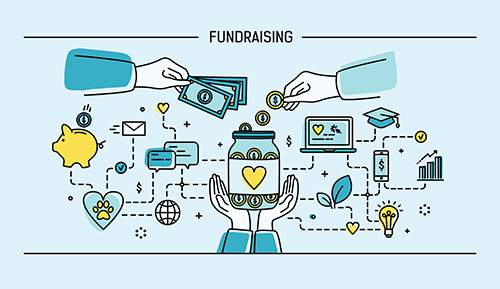
10. Choose an in-demand topic: what are you doing at your popup
When promoting the popup, you need to use all the marketing channels you can.
In addition, you want to make sure whatever you have to offer at the popup is something people want.
And this isn’t just about your product.
It’s about putting an expert there to talk about something perhaps related to your product that people will want to go to.
11. Content Marketing: how to be smart with social media
So for your marketing channels, content marketing will be great.
Write blogs, make videos, talking about your popup.
You’ll want to create the hype using hashtags on some outlets like Twitter for customers to use during the event too!
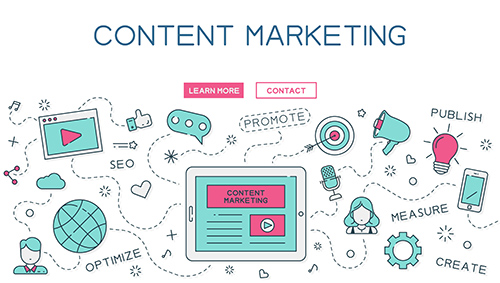
12. Influencer Marketing: find the jack of all trades to help
Who are the influencers?
They are the people within your industry whose opinion matters to your customers.
They tell people what’s hot and what’s not and you want to make sure you and your products are on the hot list.
One idea is to have a pre-popup party for influencers in your region. Give out food, drinks, prizes, and give them exclusive information. They will then spread out and publish content for you about your popup.
13. Press + Bloggers: it’s time to stop posting and let others do it as part of your event staff.
You always want to have a good relationship with the press and blogosophere.
If you have some previous relationships with journalists, you want to let them know about your popup so they publicize it for you. Think of them as your event staff,
If you don’t have this pre-existing relationship, consider drafting a press release.
14. Social Share: finding minutes in a day to blast your promotions.
During and after you’ve aggregated all this content, you want to blast all the content and all the promotion to all your customers.
You want this popup to be the thing that all your customers are waiting for!
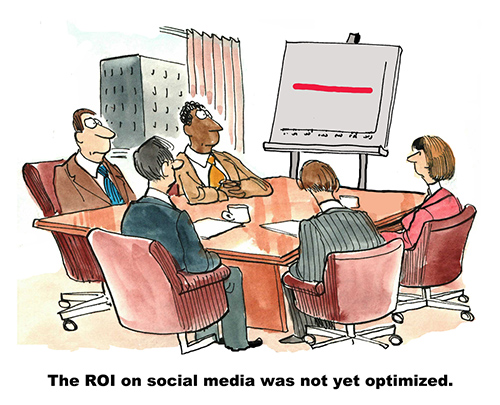
15. How to make a program for events at your popup
Remember how I brought up picking something on topic to be the theme of your popup?
Create some events around your pop up on that theme!
Get speakers, create presentations, put together a sponsored party the day of.
Anything really to get that exposure!
16. For my popup, I found a small business place for rent near me but I shouldn’t forget about my permanent location
Make sure when marketing your popup and getting everything ready that you are also marketing your other locations as well.
For instance, you want everyone who attends the popup to be aware of your online presence and your store if you have one.
That means put your site’s URL on everything from receipts to business cards to signage.
So how can you make it better:
Give out a promo code for your online products at the popup!
17. Name your own price: think about charging admittance
If you are doing pure retail, you probably want to get in as many bodies as possible.
For other types of popups like dining popups, you may want to charge an admittance just to be there.
Sure it can get pricey but you want to treat like a real restaurant!
18. What is the budget? Ticketing is perfectly acceptable and for more than just making money back.
In the same vein, you can sell tickets ahead of time.
What’s the benefit?
This creates the sense of urgency and exclusivity.
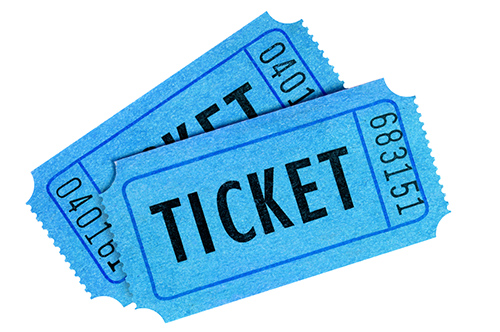
How so?
If there are only so many tickets available, any interested customers will have to pay quickly to get in. And those customers will feel exclusive once inside the popup.
19. Live Stream: let your customers know - what are you doing now
Now you are there the day of the popup. How is everyone going to keep up?
Consider live streaming the popup!
You do not need to livestream the whole thing but maybe some of the keynote parts such as speakers, presentations, or giveaways.
Let your online audience keep up.
20. Let your customers know how to get free wifi at your popup
Especially for retail, you want to make sure your wifi is working well.
This is important for tablet-based credit card transactions.
One other idea is using your phone or a tablet (if it has the capability like an iPad) as a mobile hotspot.
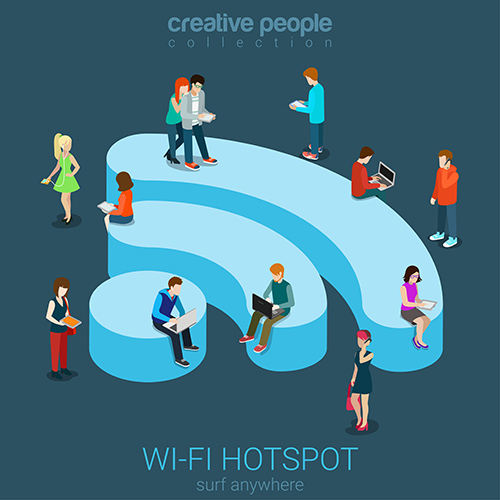
21. How to be smart about getting paid
Because you are doing a pop-up, you can be a little against tradition.
How so?
You don’t need one register.
If your event staff is armed with tablets, you can process transactions immediately.
How does this work?
It prevents long lines from forming so everyone can get in and out.
And you get paid faster! A win-win.
22. Create a hardware contingency plan: the haves and have nots for your popup
Undoubtedly, you will have a lot of electronics at your popup. From computers, to tablets, to any lights you may have, you need to make sure your hardware works before the day of your popup.
Also have backups of batteries and cables in case anything goes wrong.
23. Take Notes: I have no idea what I’m doing today but maybe I will tomorrow
If this is your first popup, things will go right and things will go wrong.
That’s just how it is with doing anything for the first time.
Make sure to take notes: both mental and written during the popup when you get a little break.

You want to note what’s working and what isn’t.
What’s the point?
You need to learn from your mistakes so you can do better next time.
24. After the popup is over, survey your customers. What are you waiting for?
During the popup and after the popup, you want customer feedback.
It’s extremely valuable data.
During the popup, you can consider giving your customers the option for filling out a survey.
You can also email your customers afterward and ask them how it was.
One tip is to not give any incentives for filling out the survey. You don’t want your customers thinking they need to say something nice about you to get that incentive!
25. What side of the brain is the creative side? Use that side.
The number one tip for a popup is to be creative.
You want to do something different because popups are already different.
And what whatever it takes to get those sales and social shares, that’s the key to success!
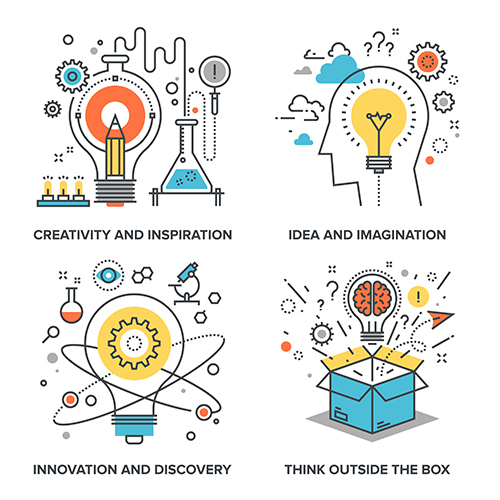
Meetings
Whether small or large, meetings are how businesses come to important decisions.

It is therefore important no matter the topic to be prepared and have everyone come to the meeting prepared.
After the meeting, everyone there should feel more enriched for being there.
So to do that, you can’t just have everyone show up to some arbitrary location and say, “ready, set, go”.
Preparation happens long before that. And here’s how:
1. Step 1 of your meeting planner checklist: what is the purpose of the meeting
The first step should always be to identify the purpose of your meeting.
Why does this make sense?
Many times companies and people will have meetings just for the sake of having meetings.
How many times have you felt that you didn’t need to be at a meeting?
A bunch, right?
That’s what we are trying to avoid.
2. In conducting effective meetings, ask do you really need to have the meeting
If you cannot figure out the purpose to a meeting, it’s better to not have the meeting at all.
With email and online chat, ask yourself if you really need to have the meeting.
Could the meeting be condensed into a long email?
Remember that a meeting takes up the time of multiple employees for quite a while so if you don’t need to meet in person, then don’t do it.
3. What is the schedule? Set a preliminary agenda
Ok, at this point, you’ve determined the purpose of the meeting and that you definitely need to hold the meeting.
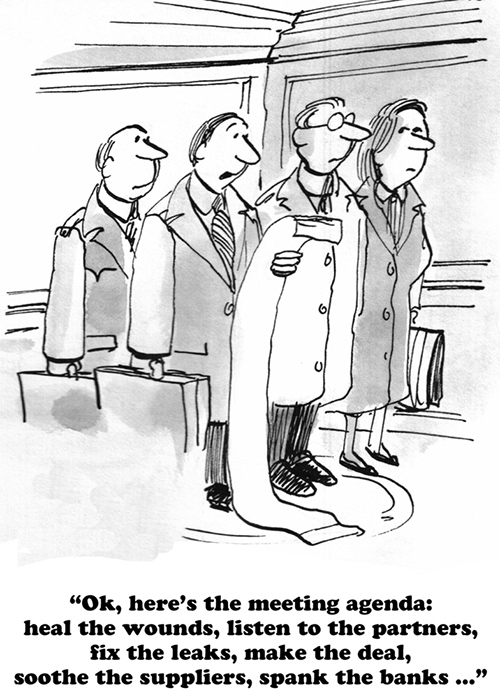
But before you go about inviting everyone, come up with a preliminary agenda that lets you decide what you need to accomplish.
And what’s the best part?
This will later inform you about who you need to invite and what you should assign to each person.
4. Meetings and the event venue rental
For those in an office with a boardroom, this might be an easy one.
However, remember the benefits of off-site meetings. Sometimes getting out of the office can be a huge boon on productivity.
5. You don’t have to become a certified meeting planner but you need to know your role
As the meeting organizer, you need to determine your role in the meeting.
And yes, you need to do this before the meeting.
Why?
You need to know how to facilitate things and which tasks you need to delegate.
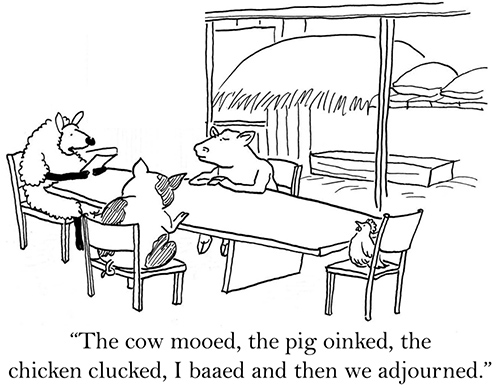
If you are the leader, the productivity of the meeting is all on you.
6. How to word RSVP request: invite only people there who need to be there
Have you ever been in a meeting of somewhere around 20 people and realized half way through, “wait a minute, only 5 people need to be here”?
That happens all the time.
It’s very important then in figuring out the purpose of the meeting that you also figure out who needs to be there.
In fact, meetings of more than six people tend to be less productive.
7. Assign roles of those you are inviting: it’s time to stop doing it all yourself (and get an event staff)
As we will get into later, you will break down roles further into subgroups.
But for now, the best tip is just figure out what each person’s place is in the meeting.
Is Jim going to be leading the talk on design and Christine going to discuss the issues related to compliance?
You need to figure out what everyone will be in charge of.
8. Break up the event staff and create subgroups: all hands on deck for the meeting
This is particularly important in larger meetings.
If you really need more than 6 people at the meeting, you may want to create subgroups with point persons so that there aren’t so many people talking.
Different teams can come back with different conclusions and then have a point person for the meeting.
That is far more efficient than having 100 people in a meeting, only 10 of whom will talk.
9. Think about your audience: work smart not hard
If everyone is going to speak, it is important for everyone to be on the same page.
It would be pretty bad if someone started speaking and no one else knew what that person was talking about, right?
So make sure you establish the context for everyone who comes beforehand.
10. Assign action items to your meeting event staff: how to increase productivity of employees individually
Now that you know who is coming and all the roles, it is important to assign the action items for each team.
Remember that this tip isn’t just good for preparing for the meeting.
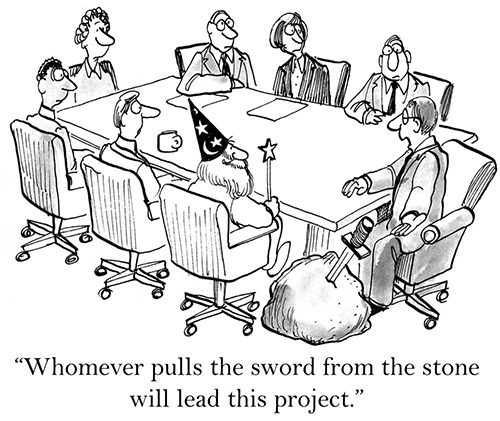
During the meeting, you will want to assign new items as they arise.
11. Send out invites: what does RSVP mean anyway?
You won’t want to walk around to everyone’s desk and let them know when and where the meeting is.
Send out an email giving the precise time and location of the meeting along with the agenda.
Make sure everyone is on the same page. And ask if anyone needs anything for what their action item?
12. Request your audience’s presentation needs: is there a room planner app for that?
You don’t know what your team leaders need to present their side at the meeting.
Therefore, you should ask if your meeting participants need internet access, whiteboards, or anything else they may need.
You will additionally want to make sure all the basic amenities are available in the meeting venue.
13. Banquet functions and catering services, well maybe just catering services
If your meeting is long enough, think about catering.
So what’s the key?
Keep the food functional. What does that mean?
It means that you don’t want the food to interfere with the meeting.
That means have the meal in a separate room so you can eat and get back to work immediately without worrying too much about the cleanup.
Seems like a little thing but it can make a lot of difference in terms of productivity.
14. Keep healthy snacks in the meeting rooms for rent near me and I’ll be right over
If you are having a long meeting, people need fuel to keep their blood sugar up.
Think of snacks like granola bars, fruit, and nuts to keep people awake, alert, and fed.

15. Have you ever seen the rain? Keep everyone hydrated
Wait, am I saying water is more important than coffee?
Absolutely!
Coffee is of course important (especially for me) but you need to stay hydrated.
Dehydration can lead to fatigue and a general lack of productivity.
So keep lots of water in the meeting room.
16. Make sure you have backup equipment: the haves and have nots for your meeting
Aside from presentation materials, you want to make sure that you have the right amenities.
But sometimes things break down or run out of batteries.
So what does that mean for you?
Have backup equipment contingencies ready like extra sets of batteries or cables just in case something goes wrong.
17. It’s time to stop posting cat videos, send out any final details to the meeting participants
If this is a big meeting, you aren’t going to send one email about the meeting. There will be several if not many.
Make sure that a few days to a week before the meeting, you send a final copy of everything so everyone is on the same page.
For example, remember how you asked everyone what their equipment requests were?
Send a final email to everyone letting everyone know what equipment will be in the venue.
18. What are you doing now - the meeting is starting!
Make sure you start the meeting on time.
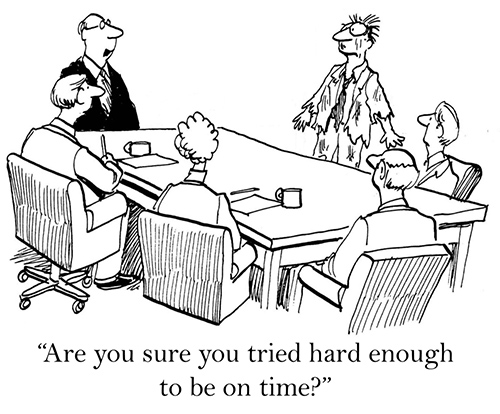
This sounds obvious but so many meetings start late. Why is this a huge problem?
If you are the meeting leader and it seems you don’t care that the meeting started late, others will not be respectful of your time.
People will think it is unimportant to discuss issues in a timely manner and soon, the agenda is all messed up.
So what do you do if one person is running late?
You start the meeting and let that person catch up later. Make sure this is the clear protocol so everyone knows that will happen should they be late.
19. Let’s get the real news real fast: make sure to optimize everyone’s time
It is up to you as meeting leader to make sure everyone sticks to the agenda items and doesn’t get sidetracked.
So if you see the topic diverging, it’s your job to get everyone in line.
20. Taking breaks at work increases productivity so stand up and take breaks regularly
For long meetings, you don’t want people getting tired too easily.
Standing up and taking regular breaks are a good way to ensure the participants stay focused.
21. Think of meetings as quick corporate team building activities for work small groups
You’ve already made the context for everyone’s presentations clear.
But some people like to divert into esoteric territory.
Make sure everyone at the meeting can understand everything that is said.
For example, if the engineering team is talking about coding, make sure it is in a communicable language and not too technical.
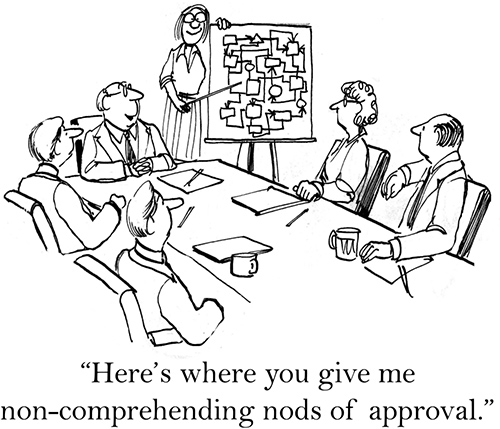
22. The struggle is real: stay on topic and use polite but forceful language to make that point
This cannot be emphasized enough. You need to keep the meeting on track.
But how?
Use language like, “Thank you, Tom but that goes outside the scope of the meeting. I’m writing that down so I can include it in the notes and we can follow up on that later.”
23. Write down every proposed idea: one of the best productivity hacks at work
It is important for someone to take notes during the meeting.
You want every idea written down, now matter how bad.
Why is that?
There is almost always at least a little nugget of wisdom in even a bad idea.
You never know when it might become useful later.
24. The meeting- it is what it is so manage your expectations for the meeting
No matter what you do, something whether big or small can go wrong.
As you hold more meetings, you will learn what to expect of your peers in the meeting.
It is therefore important throughout the whole process to manage your expectations of the meeting and what everyone can gain from it.
25. Follow up: What are you waiting for?
A meeting, no matter how productive, can be completely pointless if no one follows up.
It is important to follow up with every participant after the meeting by emailing out the action items discussed.
If there was something that did not reach resolution, keep a note of it and make sure everyone follows up on their tasks.
Events (and dealing with your event staff)
Whether hosting a conference, a social gathering, or a wedding, you need to know general things that will always come up.
Bottom line: event planning is hard and you can’t just wing it.
1. What are you doing at your event?
Events can have many different purposes. If you are a non-profit, events like galas can be big fundraisers. If you are a for-profit company, events can be centered around product launches for brand awareness or just to make money.
Or maybe your goal is lead generation.
Figure this out before you start planning because this will dictate how you proceed.
2. All eyes on you but who is your audience?
Who do you want to come to the event?
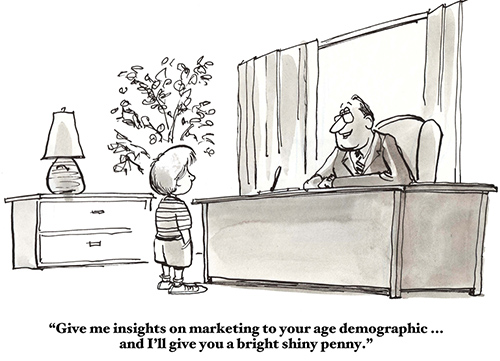
This should be something clear before you start planning. You may know your purpose but who do you want to attend?
Once you have the purpose and audience figured out, you will know how to market your event.
3. Prepare a budget (and let your event staff know about it)
Know what you are working with.
Events are funded in numerous ways: sponsorships, ticket sales, internal marketing budgets, or sometimes a combination of all three.
So if you need sponsors to fund your event, don’t start spending until you land those sponsorships.
4. Booking the event venue rental
At some point, you’ll have to book the venue. Just know that the hotel booking process can be somewhat long and cumbersome if you haven’t had experience booking a venue before.
5. What is the purpose of team building if not to get everyone to help you with the event (i.e. get an event staff)?
You’ll learn very quickly that you cannot plan and run an event all by yourself.
Make sure you put together a team of employees, temporary event staff, or both to help you out.
And then make sure to delegate to them. Trust will be key here.
6. Staying calm is one of the key factors that increase productivity in event planning
One of the key traits you will have to develop as an event planner is staying calm under pressure.
Why?
Because you are the leader and even when things go wrong, you need to reassure everyone that things will be okay.
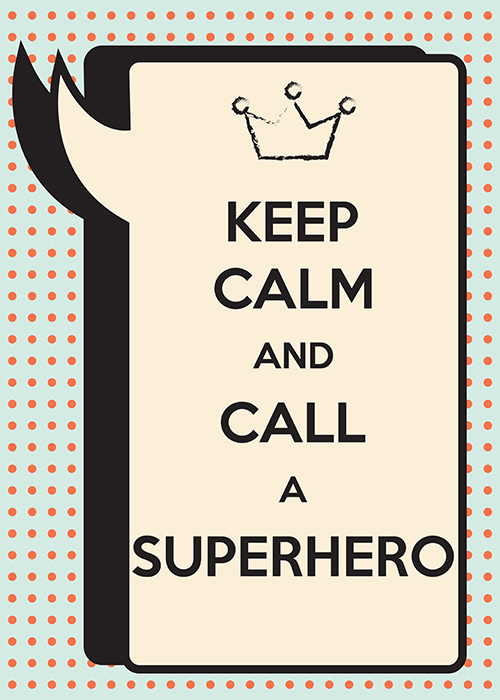
7. Getting the right insurance is how to clear your mind of potential legal woes
You need to read every contract you sign and every step of the way make sure you have the right insurance in the right amounts.
For example, some venues could require a $2 million policy while many only have a $1 million.
Why is this a big deal?
If you don’t have the right insurance, you could be in breach of a contract and if you’re involved in a lawsuit, you could end up going bankrupt.
8. Get all hands on deck with the right vendors - they are part of your event staff
If you’re a seasoned event planner, you probably have a relationship with a number of vendors.
If you’re new to this, you need to spend considerable time finding the right ones like the right caterer, A/V team, etc.
Think of it this way:
Vendors are essentially part of your event staff. You contract with them for a service specifically for your event. You want to make sure you vet all of them carefully.
9. More than just the floor plan design app, use tech tools to help you plan your event
These days, it’s easy to manage your workflow with different softwares.
You’ll want an event management tool like EventForte. With the app, you can plan and diagram your event.
This takes a lot of the manual processes of event planning into a more manageable direction.
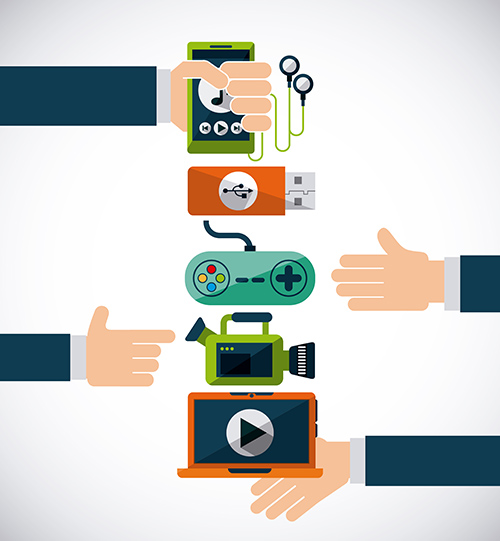
10. The contract is not just about hotel room dimensions: learn about attrition and keep it in mind the whole time
If you are planning your event at a hotel and the event is multiday, you’ll need to know what attrition is.
In short, it refers to the requirement that you get a certain percentage (usually 80-90%) of your guests to book overnight rooms.
If you don’t get enough, the attrition penalty can be somewhat costly.
Pay attention to this in your contract with the hotel.
There are also sometimes ways you can reduce the attrition fee even if you haven’t gotten the requisite number of overnight booked rooms.
11. Create a timeline (get input from your event staff) for the event as part of your party planner checklist
Once you’ve booked and have a date for your event, you can figure out what needs to get done and when.
This is your timeline.
When do you need to send out the invites, what decor do you need to order and when, and so forth.
These are the questions you need to ask yourself.
And here’s the thing: write it down!
Give yourself a guideline in your calendar.
12. Worse than a rainy wedding day: think about the weather
Is your event in outdoors/indoors? Is it in the winter, summer?
You need to figure out the likely weather early on to decide if you need things like heat lamps or if it even makes sense to have an event outdoors.
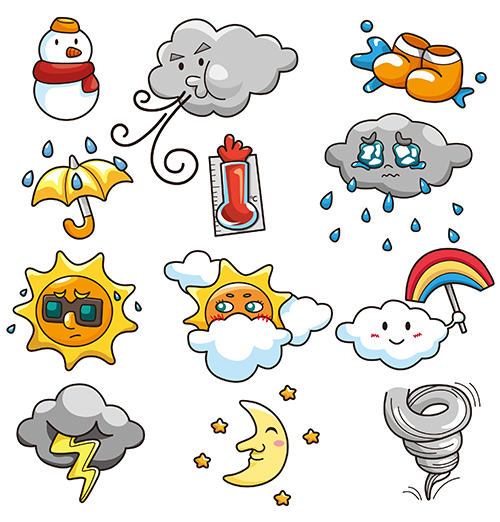
13. Keep in mind the temperature of the event venue rental
One question you should ask venue staff is how hot the room gets.
Why is this important?
You won’t know how hot a packed room is until the day of the event.
So better to ask than to be surprised.
14. Not as difficult as unique wedding themes but pick a theme and stick to it
When figuring out decor, food, and pretty much everything else, you need to think of a theme for your event.
This probably applies more for social gatherings like birthdays and holidays.
When crafting a theme, think of your guestlist and what they would like.
15. There are 1440 minutes in a day. Use some for social media to promote your event
For larger events, marketing your event will absolutely involve social media.
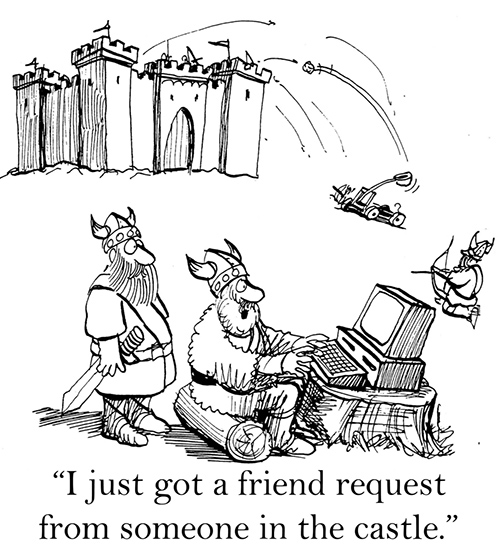
You should make use of Facebook, Twitter, and other platforms to help you out.
Here’s one thing you can do:
Create a Twitter hashtag which you can use to hype your event and which guests can use in posting pictures and tweets.
16. Create a promo video for your event: let people get to know your event for the first time
It’s actually really easy to create a low budget promotional video for your event.
You can use royalty free music, your smartphone camera, and you can create a decent video.
Make sure to put the video on YouTube and Facebook and use that help promote the event.
17. With all due respect, people may not want to hear you talk. Consider booking a speaker
Speakers are like influencers. They can bring people in the door and keep them there.
So booking one may be expensive but could have a good ROI on your event.
In booking a speaker, figure out who your audience would like most and work with the speaker to see what equipment they will need.
18. How to overcome procrastination and laziness: stay organized
With all the different things going on, staying organized is paramount in planning an event.
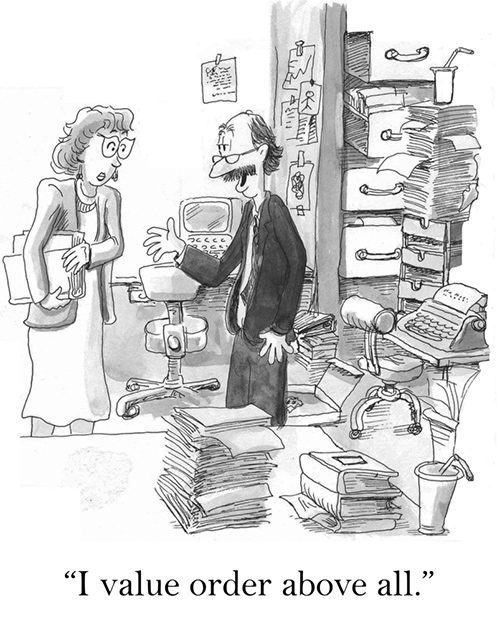
Having a master to-do list and several other lists constantly updated is very important in staying on track.
Also don’t forget tech tools that can help out.
19. When the going gets tough the tough get going in the parking lot
One thing to always keep in mind at an event is parking.
If an event is large, make sure there is ample parking.
In addition, if you are having deliveries made on site, make sure you know where those are made so you can meet with the trucks upon arrival.
20. Send out invitations: how to word RSVP request
This one seems obvious but the question is how to do it.
There are a number of different methods to use such as paper invites, email, or social media.
Once again, it’s up to your audience. What would they prefer? And should you use multiple methods?
21. How to be an event planner step 34989779: get a self serve bar
One option for an event with alcohol is to have a self serve bar.
What’s the point?
Instead of having a bartender, every guest gets to be their own mixologist.

22. Keep the appetizers simple: work smart not hard
For large events with catering, you need to make your life a little easier.
But that shouldn’t come at the expense of your guests.
Having simple appetizers like pita and hummus, and bruschetta will not displease your guests.
Simple can still be tasty!
23. Consider playing host or MC: looks like you may have to look up a pocket square guide
One way to save costs is if you play host or MC the event.
Just remember that if you are doing this, you can’t monitor everything else going on.
This is where your team comes into play.
But who better to host or MC than the person who organized everything?
24. Great event productivity hacks at work: keeping open communication with your event staff
As you know, event planning has a million moving parts. There’s event staff, vendors, speakers, clients, etc.
That’s why it is so important for you to keep open communication with everyone so that everyone is on the same page.
25. You have the guests in your guest list organizer, right? So survey them before and after the event
Remember how you are supposed to keep your audience in mind?
Well why not take all the guesswork out of certain issues like speaker topics by polling them?
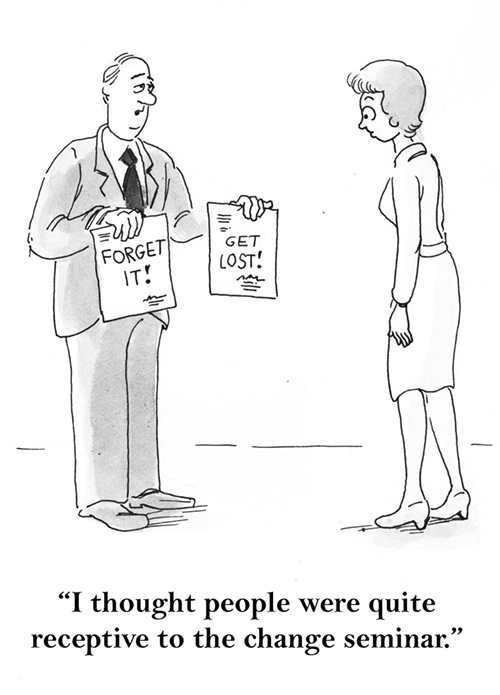
You can figure out a lot about what your audience wants by just asking them.
After the event, you can survey the guests to get a sense for what wrong and what went right so you can learn what to do differently for the next event.
Production
Whether a photo shoot, music video, or really anything with a camera, you will have a lot of moving parts.

So here are some tips to get you started.
1. What are you doing in your film? Define your audience
First, think about what’s the purpose of the video. Are you a marketing content creator? Are you trying to sell a project to a big studio?
Whatever the case, you need to figure out your audience.
Here’s a tip for a marketer:
Don’t just have a generic audience in mind. Have the video viewer in mind. That way you can target the video a lot better to the segment of your audience.
2. Prepare a budget for your shoot
Part of determining the budget is managing expectations.
If you’re making one out of many marketing content related videos, you may not want to spend too much on any one video.
3. Work smart not hard: write a script that works for you
Even if you’ve never made a video before, you need a script.
If you’re making something like a documentary, at least have an outline or a set of questions you want to ask.
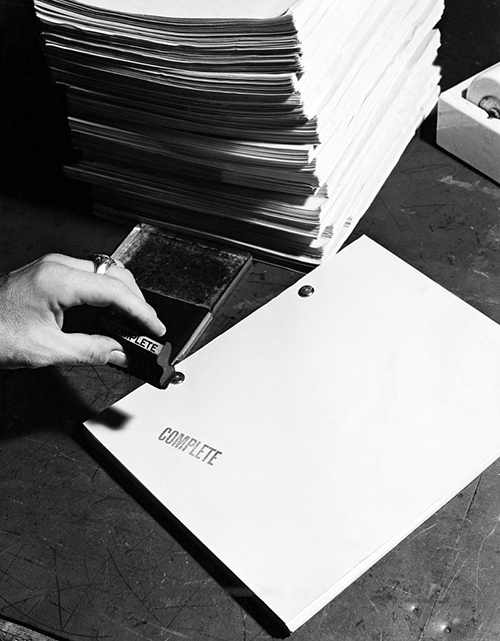
The script will guide the shots you want.
4. Of all the have and have nots, creating a storyboard is a must have
For any type of shoot, it is very useful to have a storyboard.
Think of it this way:
A storyboard is like a visual script where you capture what shots you want and in what order.
5. More than just the top productivity apps, use tech tools for your production
Using cloud solutions for writing a script is a must these days.
It simply saves so much time. With Google Docs for instance, you can have multiple people editing a script at once.
Additionally, you’ll want to invest in production software, either for scheduling or editing purposes.
6. Research, research, research you can do it!
No matter what you are filming or shooting, you want to be a master of your topic.
If you are shooting a documentary, you don’t just want to read articles and secondhand accounts. Rather, you want to read primary sources, visit locations, and talk to sources directly.
For something like a music video, become very familiar with the band’s oeuvre of work.

7. Find an event venue rental for your production
In addition researching your topic, you’ll want to research venues carefully. For outdoor venues, take into consideration weather, time of day, and who else will be there.
For some indoor venues, remember that the booking process is sometimes not easy.
8. It’s time to stop: get to your point in 8 seconds
For marketing videos, keep in mind that your audience loses attention in about 8 seconds.
So make your point quickly!
Once you’ve captured your audience’s attention, you can judge how much more content you need.
But better to be succinct than have too long a video.
9. Don’t say I don’t know what to do about permits. Make sure to obtain the necessary ones
Remember that you can’t just film anywhere whenever you feel like it.
If you want to shoot in a public place, check your municipality to make sure you either don’t need a permit or that you’ve filled out the right permit.
Keep this type of thinking in mind as the legal stuff can ruin what you are trying to do.
10. Keep in mind the legal stuff from time to time and all the time
Remember that every actor you use and every person who works on your shoot can potentially have intellectual property rights in whatever you are doing.
So get release forms of everyone involved before you begin recording to avoid these types of issues later on.
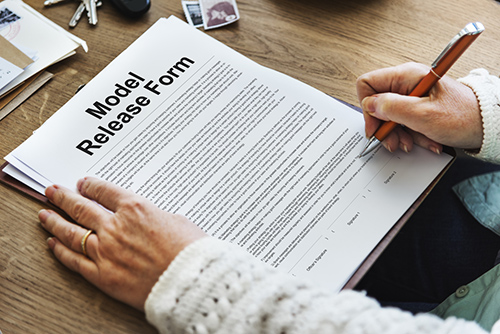
11. What is the purpose of team building: define roles for everyone involved
If you have a crew with you, you need to assign individual tasks.
It’s important to delegate when you can so you can focus on your own tasks.
Think about each shot and what needs to be done for each shot and who is handling what.
12. What is the schedule?
Whether your shoot is one day or many days, you should create a schedule so that all crew and talent know when each shot is and who needs to be there.
It is important for everyone to be on the same page.
13. It’s your production, so have it your way. Choose the right actors and models
Picking the right crew is important but so is picking the right actor or model.
And remember it’s not just who fits the role the best.
It’s also about figuring out who is the best at listening to direction.
Someone who has difficulty listening may ultimately not adhere to your vision which will affect the overall quality of the video or photoshoot.
14. All hands on deck: Testing, testing, 1-2-3
Before you start shooting, make sure all the equipment is working and all the cameras are angled where you want them to be.
You wouldn’t want to have to do any reshooting because you found out only later something you had prepared was faulty.
15. You are an all in one management service: have a risk management plan
Because you are dealing with heavy and expensive equipment, it is always a good idea to keep safety in mind.
There can potentially be a lot of people involved in a shoot so make sure your venue is not too crowded and that all the equipment is fastened and secure.
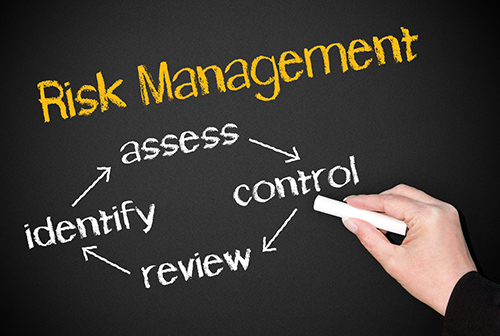
16. What are you doing to make sure you have all the right equipment
For marketing content, you’ll most likely want a teleprompter. There’s no expectation that anyone used for marketing purposes can memorize a lot of lines.
In addition, you should have at least 2 cameras and good lighting.
17. Like a wedding ceremony rehearsal, rehearse everything with your interviewee in a documentary
One thing you want to do with someone you are interviewing is to not pay attention to the camera.
People can sometimes get self conscious if they are not used to being filmed.
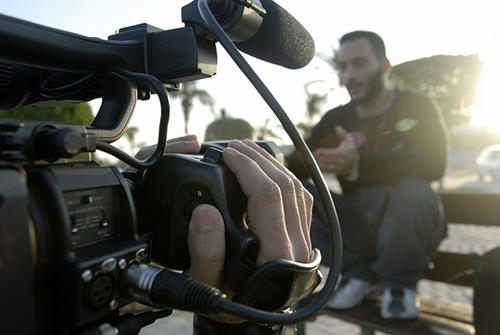
Therefore, you need to coach them!
18. What are you doing now to make your models and actors feel more comfortable
This will be especially important if you did not hire professionals.
Models and actors need strong direction and need to know what is expected of them.
You also want to make sure they feel at ease and are having fun!
19. Food and drink: from the ground up
Snack trays are not just for the A-list actors. You need food and drink available for everyone throughout the shoot.
Production works up an appetite
20. Work smart not harder step 47387438: Keep track of your takes. It will save you a lot of time.
You might feel the impulse to go from one take to the next.
The problem with doing that and moving too quickly is you might not remember how you felt about certain takes.
You need to make sure to keep a record of how you feel about every take you did so at the end, you can piece everything together.
21. When the going gets tough, bring contingency equipment
Not only will you want to bring extra small materials like cups, dishes, silverware, and trashbags.
You will also want to bring backup equipment like batteries and cables just in case.
22. Give notes to the editor: what are you waiting for
Remember the notes you took about each take.
Make sure they are readable and that you give them to your film editor.
This way your editor does not need to figure out sequence or what you prefer.
You have all your notes neatly provided to him or her.
23. Figure out distribution and then you can figure out party decoration ideas to celebrate
After you have the final product, you get it out there.
Use social media platforms, your YouTube channel, and email newsletters with an emailed link to spread the word.
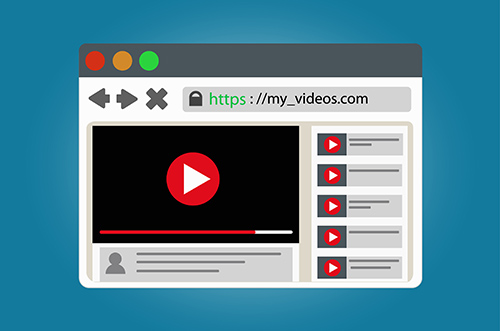
24. You can do it put your back into it: Market your content
Especially if you made this video for marketing purposes, you need to spend a considerable amount of time making sure people see your video.
In addition to just using social media and putting it on your site, you need to think about things like YouTube SEO, video ads, and so on.
25. Be flexible from time to time
As with any type of large operation, you need to be able to change and adapt.
If something in the script is not working the day of your shoot, just rewrite it or reword it.
It’s not a good idea to feel “married” to any idea.
What’s most important is that you have the best video you can possibly make.
Don’t have time to read the whole guide right now?
No worries. Let me send you a copy so you can read it when it’s convenient for you. Just let me know where to send it (takes 5 seconds)
Conclusion
Planning large scaled affairs is hard!
You cannot just go into a popup, meeting, event, or production and think you will pick it up as you go along.
That can be partly true but you need to prepare a lot.
Most important is your temperament. If you go into it willing to learn and listen, you’ll go far.
What are some tips you have regarding how to put together a popup, meeting, event, or product?
Let us know in the comments below.
Comments
Leave a comment